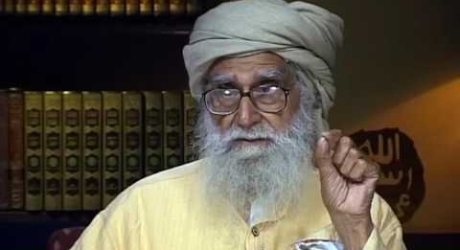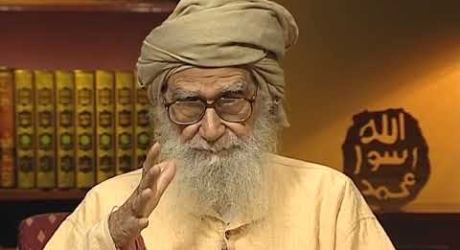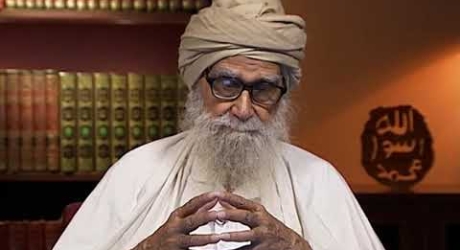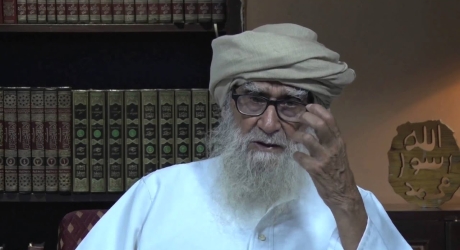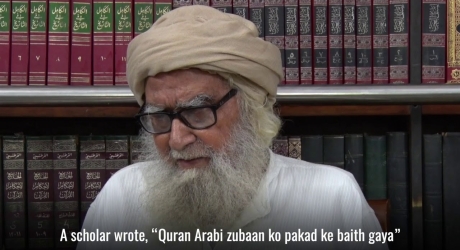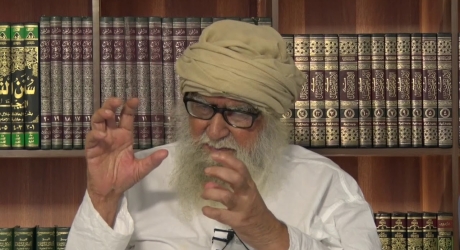We learn from a tradition of the Prophet that if a believer makes right ijtihad (re-interpretation of religious teachings in changing situations), he will receive a double reward, while if he errs in his ijtihad, he will still earn a single reward. It is sufficient to follow past precedents or traditional thinking when one engages in the work of preservation. However, to engage in intellectual leadership, one must possess a deeper understanding of the times and the capacity to engage in ijtihad, creative interpretation of Islamic sources and their application in changed circumstances. To perform the role of intellectual leadership, the Ulama must possess a deeper understanding of the times and the capacity to engage in ijtihad, creative interpretation of Islamic sources and their application in changed circumstances. Then they will be able to engage in scholarship, reform the minds of the Muslim ummah towards correct thinking and undertake dawah work, conveying God’s message to people.
Ijtihad is a very important principle of Islam. According to me, there are three sources of Islam: the Quran (word of God), Hadith (sayings and actions of the Prophet Muhammad) and Ijtihad (The reapplication of the Quran and Hadith in new situations or circumstances). In Hadith, the principle is referred to as Ijtihad and in the Quran it is called Istimbad (4:83).
Ijtihad is an Arabic word meaning “to exert one’s utmost.” That is, to exert one’s utmost to re-apply the Islamic principles in the new situations or circumstances of an age. There are two basic requirements for carrying out Ijtihad – the first one is that one must have adequate knowledge of the situations and issues prevalent in one’s times. A hadith to this effect states that,
“A believer is one who knows the age in which he is living” (Jame Al uloom wal hikam).
The other requirement is that one must be ready to carry out one’s sincere de-conditioniong, so that one can possess an unbiased or objective way of thinking.
According to the present-day Ulema, to be able to do Ishtihad one has to read the books written by the Ulema of previous times. But to my way of thinking, this does not fully equip us to carry out Ijtihad. This is only 50%. To do Ijtihad, one needs to reassess the situation and for that immense preparation is required, which is why knowledge of the present world is essential; reading books by Ulema of earlier times would not suffice. If one is not deconditioned or prepared enough and has only read the books by Ulema then one would not be able to do Ijtihad.
In 1857, the Indian Ulema engaged themselves in an armed struggle to oust the British. An alim of that time, Maulana Muhammad Ahmed, termed this struggle against the British as haram or unlawful. When asked the reason for his saying so, Maulana Ahmed replied that the Muslims were weaker in terms of arms as compared to the British and would obviously be crushed. It was a simple case of lack of might. The British had guns against their swords. However, to counter his argument, the Indian Ulema stated the example of the situation faced by the Muslims at the Battle of Badr. According to these Ulema, the Muslims were far lesser in number than the opposite party at Badr but were still victorious over them. This was a baseless argument because Quran itself establishes that during the Battle of Badr, God had strengthened the Muslims with angels. It was due to this that Muslims stood victorious despite being lesser in number. According to a tradition, when the Companions returned to Madinah and were being congratulated upon their victory, they replied saying that they had done nothing, their opponents had become like tied camels, they just went and got them down. The reason for this lack of understanding on the part of the Ulema was because they were filled with hate for the British and could therefore not realize the difference between the two situations.
Doing Ijtihad requires great wisdom and knowledge, merely knowing Arabic language and reading books by previous scholars is not enough. Ijtihad is not something mysterious and is rather a daily requirement in practical matters of life.
Muslims think of Ijtihad only in very trivial and unimportant issues, for example, whether an injection would break their fast or not or how to determine the prayer direction while travelling in the plane. These are issues, which can be understood by applying common sense; they are petty issues. Ijtihad must be applied on higher, important issues; it is so important that even missionary work cannot be done without it.
On December 14, 2008, an Iraqi journalist hurled a shoe at the US president George W. Bush while he was holding a press conference in Iraq. Muslims all over the world rejoiced and hailed this act of the journalist. A wealthy Arab was so pleased that he proclaimed an award of $ 10 million for the Iraqi journalist.
This act was a result of lack of Ijtihad. Morally it was a condemnable act because President George Bush was a guest in Iraq and therefore he should have been treated with utmost respect. Secondly, in the age of media, any news becomes global news. This action was caught live on the camera and was made to spread the world over like wildfire. This damaged and disgraced the image of Islam. It must have set people thinking that Islam is a religion, which teaches uncultured behaviour.
In the present age, differences are put forth and resolved by engaging in dialogue, not by throwing shoes. However, no Muslim spoke against this act, which not only tarnished Islam in the eyes of the world but was also against the teachings of the Quran,
“And we will keep patience the way you mistreat us”( 14:12)
The reaction of Muslims on this act shows that they no longer have Ijtihadi thinking and fail to rethink in the new situations that they face; this is the reason for their stagnation.
The following example is illustrative of how Companions did Ijtihad. The Prophet once sent a contingent to a place outside Madinah, called Banu Qurayza. Before they left, he said to them that they must ensure that they read the namaz of Asr when they reach their destination. During their journey, the people of the contingent realised that the time to pray Asr was fast passing by. This led some to say that they would read the namaz only when they reach the place since the Prophet had asked them to do so. However, there were some people who re-thought and discovered what the Prophet would have really meant. They reached the conclusion that he wanted all of them to be quick in their pace such that they reach the place by the time of Asr; thus in order to give emphasis to his words, he had said so. Therefore, the companions re-thought and reached the right judgement. Ijtihad therefore requires creative thinking but if we are conditioned we would not be able to re-think.
Example of Ijtihad in daily life
Today I received a call from Sarah Fatima who resides in Bangalore. Earlier she and her husband were involved in community work but now they are associated with the CPS mission. Recently she has put up a book-stall in a Muslim area in Bangalore. A Hindu swami visited the stall, and on going through the books on Islam and peace, was impressed and remarked: “is this the meaning of Islam, I was till now thinking that Islam teaches violence.” The swami invited her to a grand function that was to be organised by their ashram and offered that she put up her stall of books there, free of cost. The function shall continue till December 31, 2008. Sarah told me that the maximum number of persons came to their stall; majority being non-Muslims. They were all extremely thankful and moved with what their minds got to savour upon.
Muslims generally think that only Muslims would be receptive towards Islam and nobody else would be. These people are not aware of the spirit of the age in which they live. The scientific revolution has brought with it the spirit of enquiry. People are curious to know about nature, history etc and also about other religions. Muslims are ignorant of this inquisitiveness in minds of other people and hence they do not reach out to address them.
In Bhopal, some difference had developed amongst the team members of the mission. One man decided to assemble all the members; and he then read out one of my paper in which I had written about managing differences. In that paper it is mentioned that differences are a part of nature and they should not be taken as an excuse for people to move out from the team. This is an uncreative way of thinking. This set all the members to rethink and their differences got defused. This rethinking is an example of Ijtihad - the creative way of thinking.
Muslims widely believe that Prophet Muhammad continually received revelations from God. This is an incorrect belief. The Prophet received revelations on the one hand, and on the other hand he continually did Ijtihad. Had Angel Gabriel told him everything then that would have amounted to absence of self-thinking and hence stagnation. Since Prophet was a super intellectual, it is understood that he became so due to self-thinking or Ijtihad; no one can become an intellectual by lack of self-thinking.
Examples from the life of Prophet Muhammad
Here are some examples from the life of the Prophet that illustrate that he was the greatest Mujtahid, that is one who does Ijtihad.
Before receiving Prophethood, the Prophet spent most of his time in seclusion in cave Hira. Forty years of his life went in contemplating in solitude in this cave. When he received Prophethood, he was commanded to spread the message of God among the people. This required him to abandon his seclusion and reach out to people. This was a new challenge for him as he had spent his life away from people and now he had to go into the people and address them. The Prophet met this challenge by understanding that he could spread the message of God most effectively by addressing a whole gathering rather than individually reaching out to people. He discovered that gathering takes place only in one place in Makkah, that is, at the Kabah where people of various tribes came to worship their respective idols. The mission of the Prophet was based on monotheism while the people who collected at the Kabah indulged in polytheism. However, he delinked the idols and the gathering. He made use of the gathering as a platform to spread the message of God. This policy of delinking was a result of the Prophet’s creative thinking.
Similarly during the thirteen years of doing missionary work in Makkah, the Prophet faced opposition from many quarters. The hostile people planned to take away his life. The Prophet migrated from Makkah to Madinah in order to avert fighting with the Makkans. At that time, Hazarat Omar had urged the Prophet to fight the hostile Makkans; however the Prophet said: “O! Omar, we are lesser in number.” So the Prophet migrated to Madinah to search for missionary opportunities there. The people of Gaza in Palestine are facing a similar situation today. Israel is carrying out air-strikes in the Gaza strip. The people of Gaza, instead of avoiding, are retaliating with rockets and missiles. These people are not able to do Ijtihad as the Prophet did when he faced opposition by the Makkans. To be able to do Ijtihad, one needs to rise above hate and obsession. Prophet’s migration from Makkah to Madinah is termed as “flight” by some Orientalists. Flight has a negative connotation. Prophet’s migration was actually a change of workplace. To allow such creative thinking, it is important that there is no trace of negativity as planning requires positive thinking.
The strategy of the Prophet was extremely effective; when he discovered that the Makkans were still bent on war, he started negotiations for no-war. The no-war pact of Hudaybiyyah led to prevalence of a peaceful atmosphere in which missionary work flourished. Within a short span of time, the number of Prophet’s companions increased tremendously. When the Prophet and his companions peacefully marched to Makkah, the leaders of opposite camp announced to their people to go and hide inside their houses, as that day they had no power to counter Muhammad. This was due to successful planning of the Prophet. In stark contrast to this, Muslims today live in negativity and are unable to plan. The entire Muslim world speaks against the rest of the world and they live in negativity and hatred for others.
During the Hudaybiyyah agreement, some companions told the Prophet that they wanted to fight the hostile people. But the Prophet opted for negotiations because he knew that if peace prevailed then the ideology of Islam would flourish. This planning of the Prophet was a result of coming out of hatred and bias. Therefore for Ijtihadi thinking one needs to get over bias, negativity and obsessions.
In the first address, which the Prophet gave to the people of Madinah after migrating from Makkah, he did not at all mention the atrocities faced at the hands of the Makkans. In the first address the Prophet said:
“O! People, save yourselves from fire even if it is with a piece of date.” (Al-Bukhari)
There is a deep meaning in the above saying of the Prophet. It was an exhortation to people to rise above the worldly concerns and to make the Hereafter their sole concern. This helped people develop high thinking. The Prophet never made atrocities or hate a subject of discussion; he only discussed the Hereafter with people. This helped the people of Arabia to come out of their worldly obsessions. A historian has remarked that Arabia was a sleeping nation but after Prophet Muhammad, the Arabs became a “nation of heroes.”
High thinking can make a man, superman. All it requires is positive thinking.





